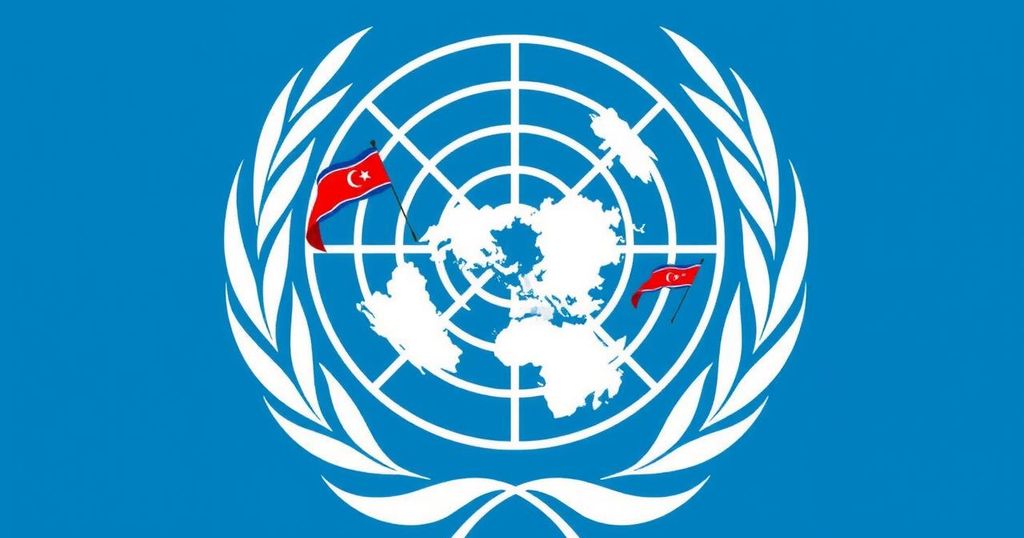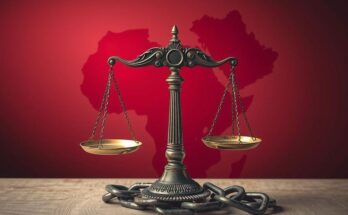The U.N. committee adopted a resolution addressing North Korean human rights for the 20th year, expressing concern over its recent abandonment of reunification with South Korea. The document highlights severe restrictions on personal freedoms and the government’s funding of weapons programs through human rights abuses. The resolution calls for improved conditions and the return of abductees, while North Korea categorically rejects the accusations.
In a significant continuation of its stance against North Korea’s human rights record, a U.N. General Assembly committee adopted a resolution on this issue for the 20th consecutive year. This resolution, passed by consensus, expresses grave concern over the North’s decision to abandon reunification with South Korea, as well as its oppressive laws stifling individual freedoms. Moreover, the resolution highlights the regime’s relentless focus on military spending, often at the expense of its citizens’ basic human rights, particularly their right to adequate food and freedom of thought.
The documentation sheds light on the extensive and severe restrictions imposed by the North, indicated by its draconian laws against dissent and controlled dissemination of information. It calls for a systematic approach from the U.N. to address human rights issues in North Korea in a unified manner. This year marks a milestone as the resolution specifically condemns the North’s renunciation of reunification, a policy that has been a long-standing aspiration for both Koreas.
At an alarming pace, the North Korean government is accused of fueling its weapons programs through human rights abuses, including forced labor. This situation provoked South Korea and the U.S. to emphasize the urgency of human rights improvements amidst serious violations that have been categorized as crimes against humanity. The resolution calls on North Korea to facilitate a return for all abductees from South Korea and Japan, urging the regime to adopt policies safeguarding freedoms in various aspects of life.
South Korea’s Deputy Ambassador to the U.N., Kim Sang-jin, observed that despite urgent calls for improvement, the human rights status in North Korea has only deteriorated further. The South Korean foreign ministry appreciated the resolution, emphasizing the international community’s unified concern over human rights atrocities and reaffirming their commitment to address these issues actively. In stark contrast, North Korea’s envoy dismissed the resolution as a political maneuver, adamantly claiming that “the so-called human rights issue cannot exist in our country.”
The adopted resolution is expected to move to the General Assembly session for final approval in December, continuing the tradition since 2005 of shedding light on North Korean human rights violations and amplifying calls for action.
The ongoing issue of human rights in North Korea remains a topic of grave concern for international communities. Since 2005, the U.N. General Assembly has consistently addressed human rights violations in the Democratic People’s Republic of Korea (DPRK), reflecting a growing global consensus on the severity of such abuses. The regime’s oppressive policies, coupled with its emphasis on military development over civilian needs, create an environment where citizens are deprived of basic rights, leading to intensified scrutiny from global bodies. The recent resolution marks a pivotal point as it directly mentions North Korea’s dismissal of reunification efforts, highlighting the changing political landscape on the Korean Peninsula. This aspect of the resolution signals the increasing urgency of combating human rights violations amidst geopolitical tensions and humanitarian crises.
The U.N. committee’s decision to adopt the resolution on North Korean human rights for the 20th consecutive year underscores the international commitment to address human rights abuses in the region. With explicit mentions of the North’s denial of reunification aspirations and systemic violations threatening individual freedoms, this resolution serves both as a call for accountability and a beacon of hope for the affected populations. The contrasting responses from South Korea and North Korea reveal the complexities of the ongoing struggle for human rights, while the next steps await confirmation in the upcoming General Assembly session.
Original Source: www.koreatimes.co.kr



